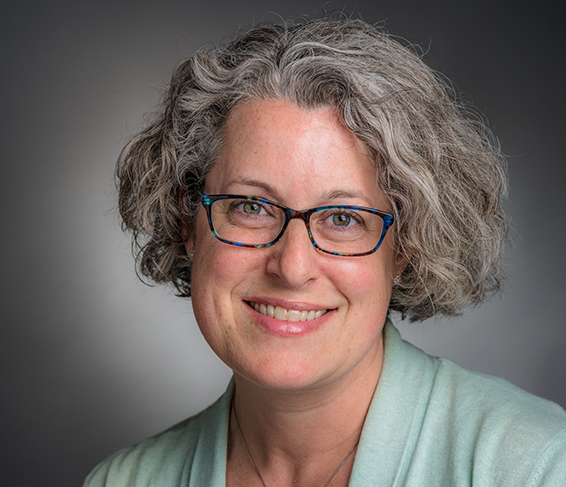
Q&A with Jane deLima Thomas, MD
July 24th, 2020
Jane deLima Thomas, MD is Clinical Director of Adult Palliative Care at Brigham & Women's Hospital and Dana-Farber Cancer Institute and Associate Director of the Harvard Interprofessional Fellowship Program. She is also an Assistant Professor in Medicine at Harvard Medical School and course faculty for Palliative Care Education and Practice.
Why did you decide to work in palliative care?
Like many people who decide to be clinicians, I went to medical school with a sense of idealism but without a clear of sense of what I was going to do with it. I tried a bunch of different things: I did some global health, traveling to India and Ecuador, and I did some urban underserved medicine, working in a homeless shelter and public inebriation clinic, but I couldn’t really find the right fit. In the course of completing a geriatrics fellowship, I discovered this relatively new field of palliative care. I went to a conference and experienced that moment of revelation and angels singing. I came to Dana-Farber to start my palliative care fellowship 16 years ago and I’ve loved the work ever since.
Tell us about your area of expertise.
I think a lot about the clinician’s experience in the clinical encounter. This includes how clinicians are affected by the work we do, how our own history, biases, insecurities, and family structures influence us as clinicians, how patient stories can trigger our own vulnerabilities, and how to become more mindful of these issues. I tend to write perspective and narrative medicine pieces, mostly about the leaky membrane between the role of the clinician and the role of the patient. When we’re in our clinician role, we like to think of that as a distinct role. But really we’re bringing our humanity, our stories and our vulnerabilities into the room, so we can’t just exist in the role of clinician – we’re human beings. Thinking about that tension informs what I write about and how I think about teaching fellows and protecting and buttressing their humanity while they’re going through a difficult training program.
What’s your favorite part of your job?
I have two leadership roles: I’m the Associate Director of the Harvard Interprofessional Fellowship Program and the Clinical Director of Adult Palliative Care at Brigham and Women’s Hospital and Dana-Farber Cancer Institute. In both jobs, I get to do my favorite thing, which is getting to know the people I’m overseeing, assessing where they are in their professional development, and figuring out how to help them get where they want to be. This involves trying to see people fully, being firmly in their corner and invested in their success, and being creative about how to put resources and opportunities together so that people are doing work that they love to do and they are well suited to do, so they thrive and feel happy. I get a lot of joy out of figuring out how to situate people professionally so that they can grow and thrive.
Tell us about your background.
I grew up in Cohasset on the South Shore of Massachusetts. Growing up, athletics were a big part of my identity. I did gymnastics pretty seriously from an early age, ran track and field in high school, and was a springboard and platform diver in college. I was also an avid reader. My nickname in middle school was “Bookworm,” which was not always meant affectionately. I was the type of person who would read a book as I was walking down the hallway from one class to another.
I was 17 when I started college and I really stumbled in my first semester and failed some of my classes. I left school and went to work as a receptionist in an OB-GYN office. I was lucky to work with physicians who took me to the hospital with them and let me watch C-sections and deliveries. I applied to Northeastern so that I could intersperse semesters of school with semesters of co-op, and that ended up being the key for me to enjoy college and succeed in my studies. For parents out there who despair if your kids fail out of school, hang on for a bit. I ended up doing years and years of school after the point I thought I left school forever.
What is the most difficult challenge you've had to overcome?
In 2008, I separated from my husband. All divorces are painful, and mine was also ugly. I felt like my whole life came apart; it took me almost a decade to recover. I kept working the whole time and raised my son, but I struggled in many ways and experienced severe anxiety and depression. A little to my own disbelief, I was able to get help, heal, grow stronger and emerge from it.
The whole time, from the outside, it looked like I was pretty successful. I think it’s important to know that you can’t gauge what’s happening behind the scenes from how people look on the outside. There’s something really insidious and harmful that many Type A people do, which is to compare their insides to other people’s outsides. I think that it’s worthwhile to keep in mind that most people are struggling in one way or another. It can help us be more compassionate to one another. It can also help us be more compassionate to ourselves and less judgmental of our flaws and the challenges we are facing.
The experience gave me a lot of hard-won gifts, like a much deeper understanding of what my patients and colleagues go through. I found a greater capacity to intuit what people are experiencing and imagine more quickly and fully how something might be affecting them, and I rely on that a lot in my roles as a clinician, teacher, and supervisor.
